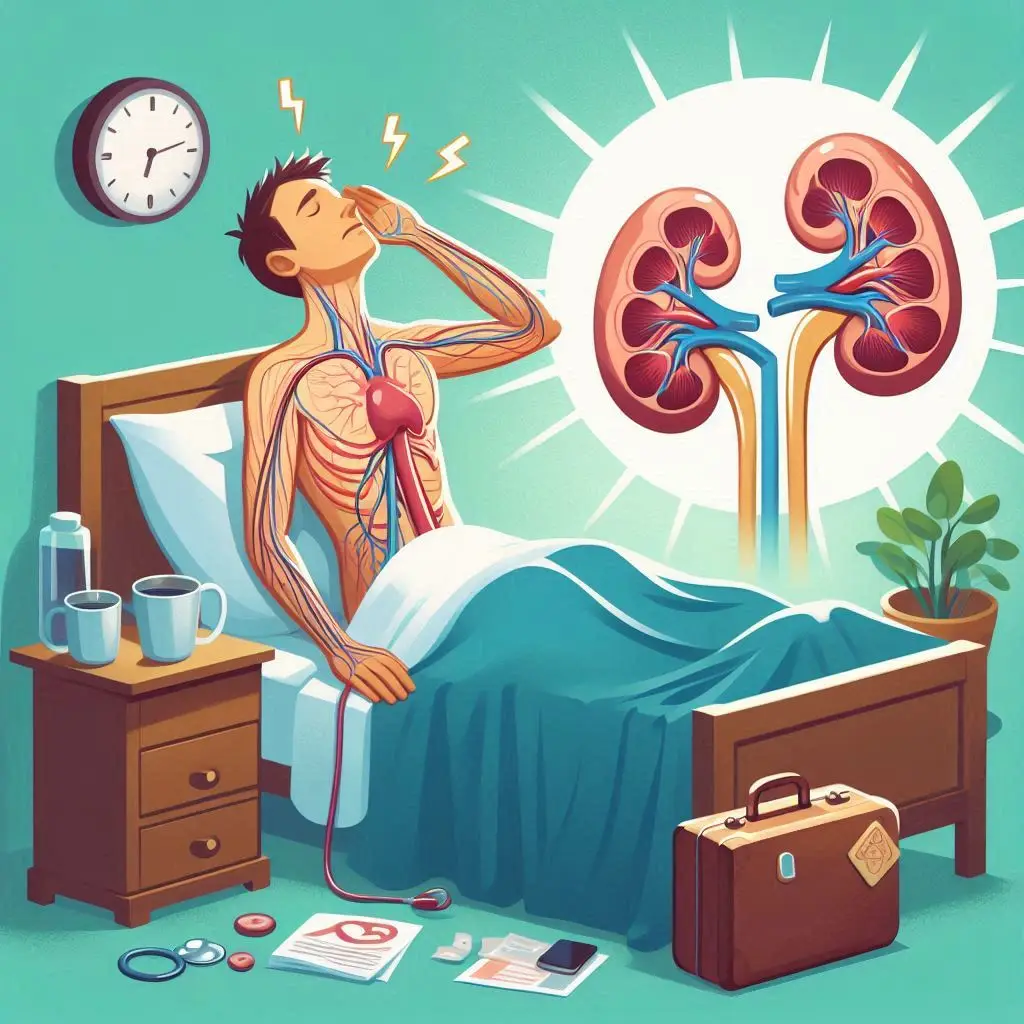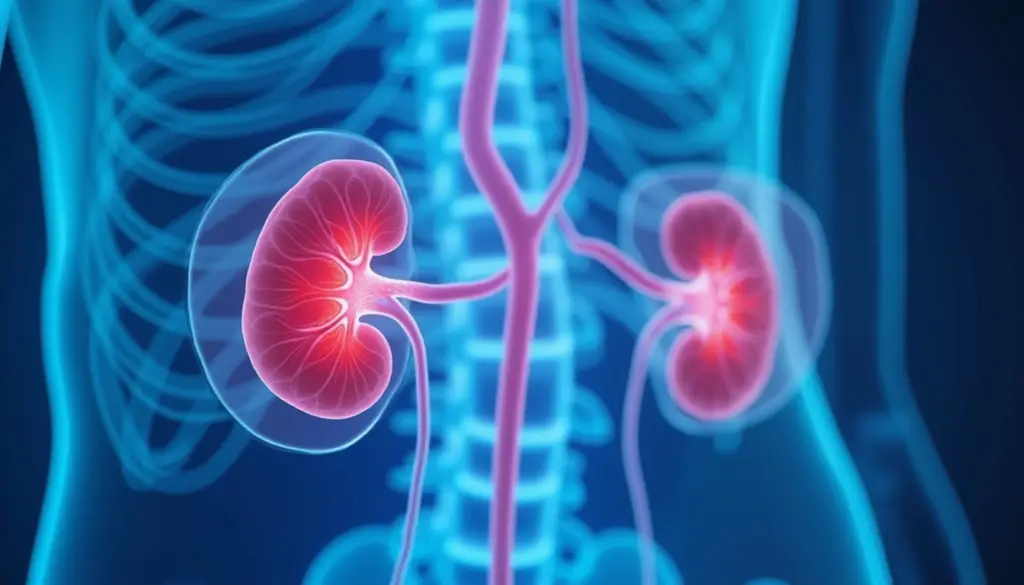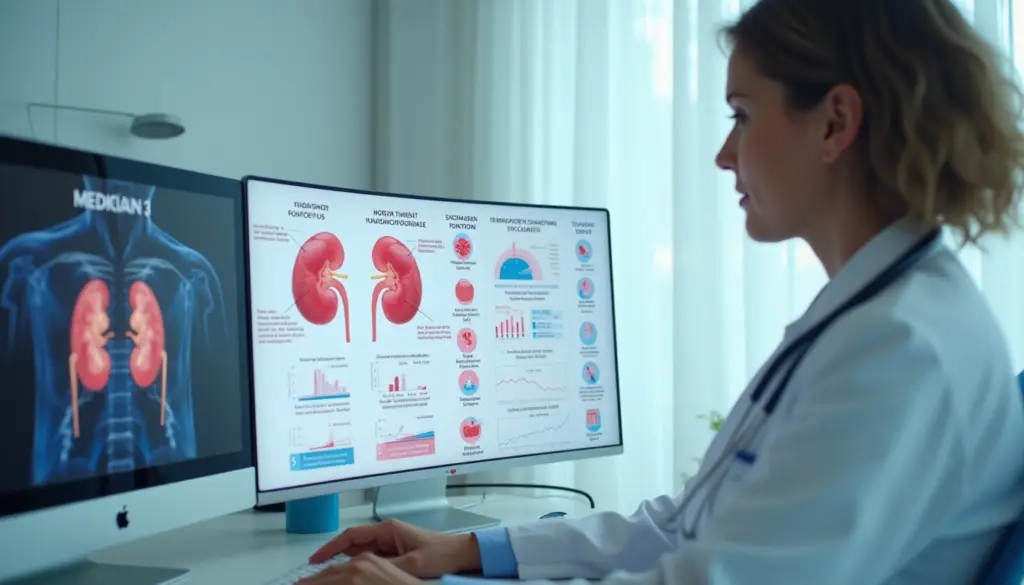Discover 5 crucial morning signs that show your kidneys may require immediate medical attention for optimal health.

Table of Contents

5 Morning Signs Your Kidneys Need Urgent Attention
Your kidneys are vital organs responsible for filtering waste, balancing fluids, and regulating blood pressure. However, kidney damage often goes unnoticed until it reaches an advanced stage. Recognizing early signs of kidney issues, especially in the morning, can help you seek timely medical attention and prevent further damage. In this article, we’ll explore 5 morning signs your kidneys need urgent attention, along with actionable steps to protect your kidney health.
Why Morning Signs Matter for Kidney Health
The morning is a critical time to assess your kidney health. After hours of rest, your body’s fluid balance and waste filtration processes are in full swing. Any irregularities in kidney function often manifest as noticeable symptoms during this time. Ignoring these signs can lead to severe complications, including chronic kidney disease (CKD) or kidney failure.

5 Morning Signs Your Kidneys Need Urgent Attention
1. Swelling in Hands, Feet, or Face (Edema)
- What It Means: Kidneys regulate fluid balance. When they’re damaged, excess fluid builds up, causing swelling (edema).
- Morning Symptom: Puffiness around the eyes, swollen hands, or feet upon waking.
- Action: Monitor persistent swelling and consult a doctor if it doesn’t subside.
- Swelling in the hands, feet, or face, also known as edema, can be a sign of various underlying health conditions. Here are some key points about edema:
- Causes: Edema can be caused by a range of factors, including kidney disease, heart failure, liver disease, and certain medications2.
- Symptoms: The swelling may be accompanied by other symptoms such as pain, stiffness, and difficulty moving the affected areas2.
- Diagnosis: Diagnosis typically involves a physical examination, medical history review, and tests such as blood tests, urine tests, and imaging studies.
- Treatment: Treatment depends on the underlying cause and may include medications like diuretics, lifestyle changes, and addressing the root health issue
2. Foamy or Bubbly Urine
- What It Means: Foamy urine indicates protein leakage (proteinuria), a sign of kidney damage.
- Morning Symptom: Noticeable foam or bubbles in your first-morning urine.
- Action: Get a urine test to check for protein levels.
3. Fatigue and Weakness
- What It Means: Kidneys produce erythropoietin, a hormone that helps make red blood cells. Damaged kidneys can lead to anemia, causing fatigue.
- Morning Symptom: Feeling unusually tired or weak despite a full night’s sleep.
- Action: Check for anemia and kidney function through blood tests.
- Fatigue and weakness can be caused by a variety of factors, ranging from lifestyle choices to underlying health conditions. Here are some common causes:
- Lack of Sleep: Not getting enough rest can lead to persistent tiredness and weakness.
- Nutrient Deficiencies: Deficiencies in vitamins and minerals, such as iron, vitamin D, and B vitamins, can cause fatigue.
- Chronic Stress: Prolonged stress can lead to physical and mental exhaustion.
- Medical Conditions: Conditions like anemia, thyroid disorders, diabetes, and chronic fatigue syndrome can result in fatigue and weakness2.
- Dehydration: Not drinking enough water can lead to feelings of tiredness and weakness.
- Poor Diet: A diet lacking in essential nutrients can contribute to fatigue.
- Medications: Some medications have side effects that include fatigue and weakness.
- If you’re experiencing persistent fatigue and weakness, it’s important to consult with a healthcare professional to determine the underlying cause and receive appropriate treatment.
4. Metallic Taste or Bad Breath
- What It Means: Kidney dysfunction can cause a buildup of waste products in the blood, leading to a metallic taste or ammonia-like breath.
- Morning Symptom: Persistent bad breath or a strange taste in your mouth upon waking.
- Action: Consult a doctor to evaluate kidney function.
5. High Blood Pressure in the Morning
- What It Means: Kidneys regulate blood pressure. Damage can lead to hypertension, which is often more pronounced in the morning.
- Morning Symptom: Elevated blood pressure readings during your morning check.
- Action: Monitor blood pressure regularly and seek medical advice if it remains high.

Why These Signs Should Not Be Ignored
Ignoring these morning signs can lead to:
- Chronic Kidney Disease (CKD): Gradual loss of kidney function.
- Kidney Failure: Complete loss of kidney function, requiring dialysis or transplant.
- Cardiovascular Issues: Kidney damage increases the risk of heart disease and stroke.
How to Protect Your Kidney Health
1. Stay Hydrated
- Drink plenty of water to help kidneys flush out toxins.
- Avoid excessive caffeine and alcohol, which can dehydrate you.
2. Maintain a Balanced Diet
- Limit salt, sugar, and processed foods.
- Include kidney-friendly foods like berries, leafy greens, and fish.
3. Monitor Blood Pressure and Blood Sugar
- High blood pressure and diabetes are leading causes of kidney damage.
- Regularly check your levels and follow your doctor’s advice.
4. Avoid Overuse of Painkillers
- Over-the-counter painkillers like ibuprofen can harm kidneys if used excessively.
- Opt for natural pain relief methods when possible.
5. Get Regular Check-Ups
- Routine blood and urine tests can detect early signs of kidney issues.
- Early intervention can prevent further damage.
Frequently Asked Questions (FAQs)
1. Can Kidney Damage Be Reversed?
Early-stage kidney damage can often be managed or reversed with lifestyle changes and medical treatment. Advanced damage may require dialysis or transplant.
2. How Often Should I Check My Kidney Function?
If you have risk factors like diabetes, high blood pressure, or a family history of kidney disease, get tested annually.
3. Are There Silent Signs of Kidney Damage?
Yes, kidney damage can be asymptomatic in early stages. Regular check-ups are crucial for early detection.
Conclusion
Your kidneys play a vital role in maintaining overall health, and recognizing morning signs of kidney distress can save you from severe complications. From swelling and foamy urine to fatigue and high blood pressure, these symptoms are urgent kidney health alerts that should not be ignored. By adopting a kidney-friendly lifestyle and seeking timely medical attention, you can protect your kidneys and ensure long-term wellness.
Share this content:
